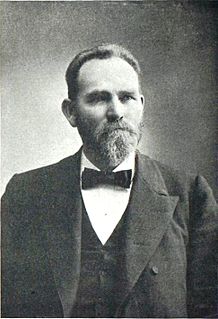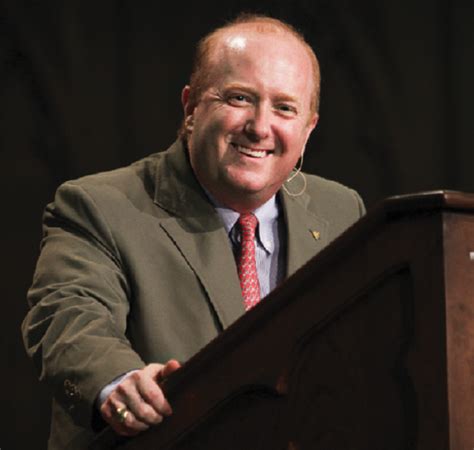A Quote by William Shakespeare
Related Quotes
We mourn; we sorrow for our loved ones that go - our wives, our husbands, our children, our parents; we sorrow for them; and it is well and proper that we should moum for them and shed tears for the loss, for it is our loss; but it is their gain, for it is in the march of progress, advancement and development. It will be all right when our time comes, when we have finished our work and accomplished what the Lord required of us.
God uses suffering to purge sin from our lives, strengthen our commitment to Him, force us to depend on grace, bind us together with other believers, produce discernment, foster sensitivity, discipline our minds, spend our time wisely, stretch our hope, cause us to know Christ better, make us long for truth, lead us to repentance of sin, teach us to give thanks in time of sorrow, increase faith, and strengthen character.
It is abundantly evident that, however natural it may be for us to feel sorrow at the death of our relatives, that sorrow is an error and an evil, and we ought to overcome it. There is no need to sorrow for them, for they have passed into a far wider and happier life. If we sorrow for our own fancied separation from them, we are in the first place weeping over an illusion, for in truth they are not separated from us; and secondly, we are acting selfishly, because we are thinking more of our own apparent loss than of their great and real gain.
Recently, one friend asked me, "How can I force myself to smile when I am filled with sorrow? It isn't natural." I told her she must be able to smile to her sorrow, because we are more than our sorrow. A human being is like a television set with millions of channels. If we turn the Buddha on, we are the Buddha. If we turn sorrow on then we are sorrow. If we turn a smile on, we really are the smile. We can not let just one channel dominate us. We have the seed of everything in us, and we have to seize the situation in our hand, to recover our own sovereignty.
Instead of seeing all of this as God's extraordinary grace, we come to expect the comfort and joys that God gives us as the baseline, the measure of what we believe to be our due. When our comfort level drops below our expectations, we are shocked and angered, and even foolishly express our outrage to God Himself.
A home is much more than a house built of lumber, brick, or stone. A home is made of love, sacrifice, and respect. We are responsible for the homes we build. We must build wisely, for eternity is not a short voyage. There will be calm and wind, sunlight and shadows, joy and sorrow. But if we really try, our home can be a bit of heaven here on earth. The thoughts we think, the deeds we do, the lives we live not only influence the success of our earthly journey, they also mark the way to our eternal goals.
The sad thing is that, even though we know our lives aren't working in certain areas, we are still afraid to change. We are locked into our comfort zone, no matter how self-destructive it may be. Yet, the only way to get out of our comfort zone and to be free of our problems and limitations is to get uncomfortable.






































